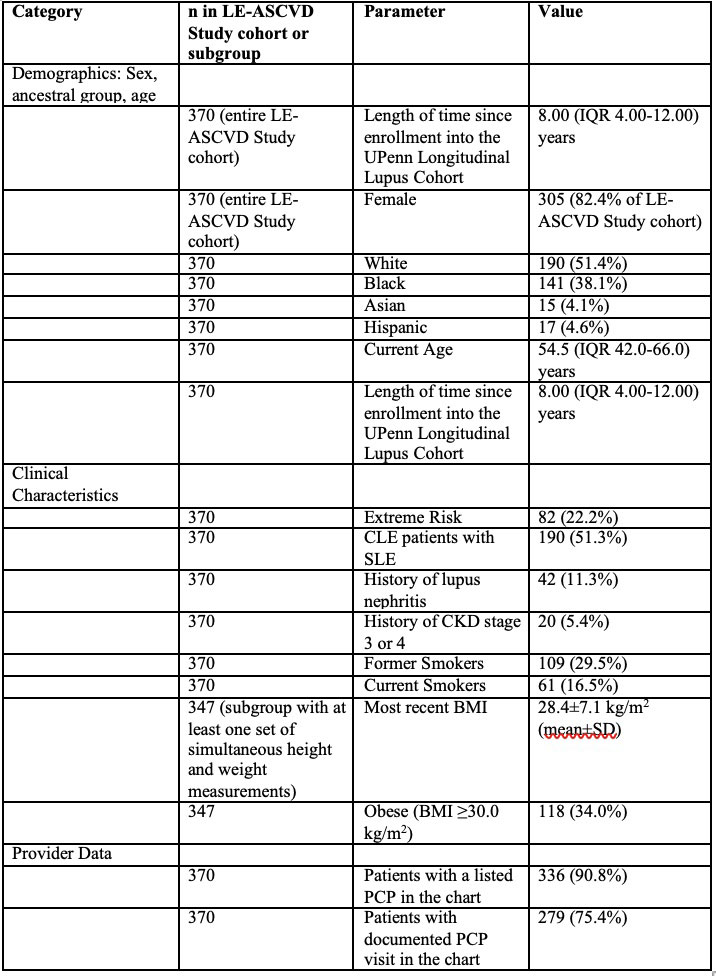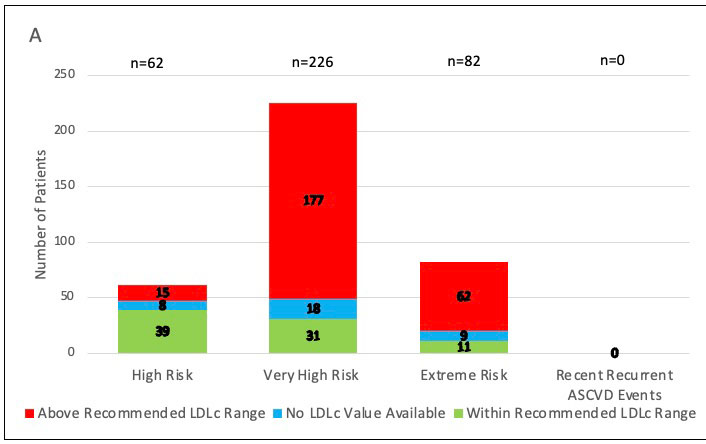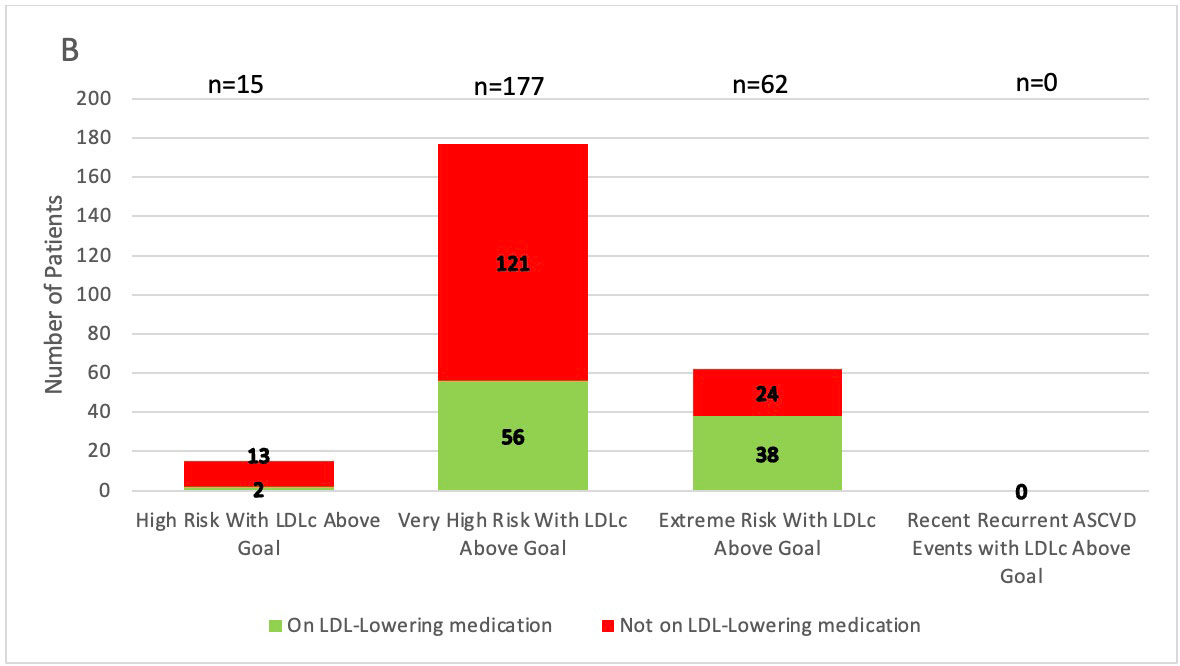Session Information
Date: Sunday, November 13, 2022
Title: SLE – Diagnosis, Manifestations, and Outcomes Poster II: Manifestations
Session Type: Poster Session C
Session Time: 1:00PM-3:00PM
Background/Purpose: Lupus erythematosus (LE) patients are at heightened risk of clinical events, chiefly heart attacks and strokes, caused by ASCVD. To address this problem, we recently proposed new guidelines forcategorization of levels of risk for ASCVD events in LE patients, with corresponding recommendations for management of conventional risk factors, chiefly hypercholesterolemia, hypertension, smoking, and diabetes mellitus (Keyes E et al. 2021).
Methods: Here, we performed a single-center study of our established cohort of cutaneous LE patients without or with concurrent systemic LE (n=370). Our goal was to assess how current management compares with the newly proposed guidelines.
Results: Of our LE cohort, 336/370 (90.8%) had a designated primary care physician. By the newly proposed guidelines, the most recent plasma low-density lipoprotein cholesterol (LDLc) levels for 254/370 (68.6%) of the LE cohort were above goal. Of those 254 LE patients with above-goal LDLc, the following were not on any LDL-lowering medications: 13/15 (86.7%) classified at high ASCVD event risk, 121/177 (68.4%) at very high event risk, and 24/62 (38.7%) at extreme ASCVD event risk. The American College of Cardiology calculator for the 10-year risk of an ASCVD event could be used on 248/370 (67.0%) of the LE cohort. Of those 248 LE patients, the following were not on LDL-lowering medications: 109/129 (84.5%) who had a calculated 10-year event risk < 5%, 34/49 (69.4%) with 5-< 10% risk, 23/43 (53.5%) with 10-< 20% risk, and 11/27 (40.7%) with ≥20% risk. Of LE patients with clinically evident ASCVD, 36/82 (43.9%) were not on LDL-lowering medications.
Conclusion: We conclude that LE patients are undertreated for conventional ASCVD risk factors. Efforts to improve the problem are underway.
Categorical parameter¬s are given as n (%). Continuous variables are given as mean±SD if normally distributed, or as median (interquartile range, IQR) if non-normally distributed.
To cite this abstract in AMA style:
Zhao M, Williams K, Jacoby D, Feng R, Werth V. Management of the Heightened Risk for Clinical Events from Atherosclerotic Cardiovascular Disease (ASCVD) in an Established Cohort of Lupus Erythematosus Patients [abstract]. Arthritis Rheumatol. 2022; 74 (suppl 9). https://acrabstracts.org/abstract/management-of-the-heightened-risk-for-clinical-events-from-atherosclerotic-cardiovascular-disease-ascvd-in-an-established-cohort-of-lupus-erythematosus-patients/. Accessed .« Back to ACR Convergence 2022
ACR Meeting Abstracts - https://acrabstracts.org/abstract/management-of-the-heightened-risk-for-clinical-events-from-atherosclerotic-cardiovascular-disease-ascvd-in-an-established-cohort-of-lupus-erythematosus-patients/



